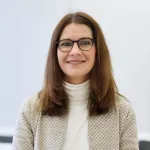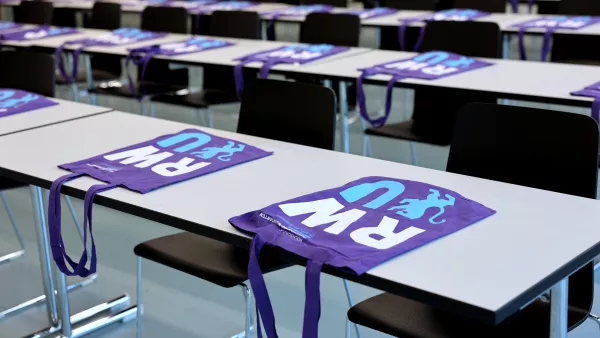School & RWU
Strong together in study orientation
Are you a teacher at a grammar school, a vocational college, a vocational college or a technical college? Would you like to provide your students with the best possible support in their study orientation and choice of studies ? Then RWU Ravensburg-Weingarten University of Applied Sciences is the right place for you!
We offer you and your school class a wide range of opportunities to get to know our university and our range of courses in a practical way. Whether at your school or on our campus: our offers are flexible and can be individually tailored. We are also happy to support you with career guidance and are on hand to answer any questions you may have about choosing a course of study. We are also happy to advise your students individually on their study choices.
Our services at a glance:
- RWU offers study orientation directly at schools (incl. MINT-Mobil).
- School classes can experience the university on site.
- Practical insights and flexible STEM offers.
Under the tab "Our offers" tab you will find a catalog of our formats: from short workshops for a single lesson to individual excursions to RWU. Of course, these offers can be tailored to the needs and interests of your students.
Please send us your request via the contact form in the tab "Our offers" tab. You are also welcome to contact us if you have any questions. You can find our contact details in the tab "Contact & People" tab. Please feel free to contact us. We look forward to working with you!
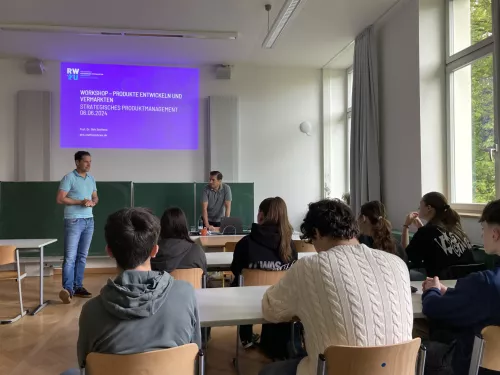
We come to your school
For our partner schools, we offer a wide range of study orientation services directly at your school. We are happy to support you with
- parents' evenings on choosing a course of study
- School career orientation events with an advice stand, information presentations or coordinated group offers
- School lessons with our experts
A special highlight is our MINT-Mobil.
We bring it directly to your school and bring STEM subjects to life with exciting hands-on stations, experiments and practical insights into technical degree courses. The offer is aimed at all schools in our region and can be booked independently of an existing cooperation.
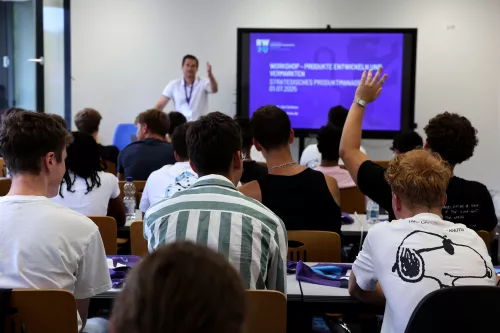
Visit us with your class
Experience RWU live together with your students! Our wide range of offers provide exciting insights into everyday university life and support your students in their choice of studies:
- Workshops that provide insights into the various faculties
- Taster lectures to experience everyday student life up close
- Laboratory tours to discover technical and scientific degree courses in a practical way
- Campus rallies to explore the campus in a fun way
- Library tours that offer insights into research work and everyday learning life
- Open Math and STEM workshop that you can visit with your class spontaneously and without prior registration
Our offers
Offers for career and study orientation
Future Skills
Technology & Mobility
Computer Science & Design
Social & Health
Economy
Around the campus
Contact us - we look forward to hearing from you!
Have we aroused your interest? Use our contact form to send us your inquiry. Together we will put together an offer that suits you and your class exactly.
For organizational reasons, we ask that you submit your request at least four weeks before your desired period.
We look forward to working with you and supporting your students in their study orientation.
Thank you for your request!
Open workshop
Open workshop
Visit us with your class - it's easy and you don't need to book in advance.
Your advantages:
- Experience science up close together with dedicated students and experts
- Work hands-on: Try out exciting questions directly
- Access to modern technologies and innovative learning environments
- Offers can be used flexibly for your own STEM ideas and school projects
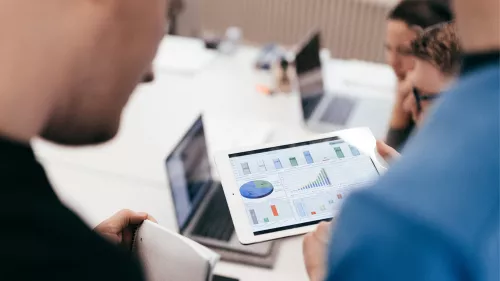
Math and STEM workshop
Workshop for teachers
Impulses and exchange for teachers
To support your work in study and career guidance, we offer a workshop for teachers twice a year. This takes place at RWU in April and October. The event is aimed at teachers who work in the field of career guidance, as well as all other interested teachers who are concerned with the transition from school to university, would like to find out about current developments in the university landscape or are interested in the workshop topic.
The topics and content of the workshop will be announced on this page in good time. You can also let us know your preferred topics. We will be happy to take up your suggestions for future events. The aim of our workshops is to impart practical knowledge, provide guidance and promote exchange between schools and universities.
The dates for 2026 are currently still being planned. As soon as they are finalized, we will inform you here about the further registration process.
Contact & People
General contact details
| schulkontakte@rwu.de | |
| Postal address |
RWU Hochschule Ravensburg-Weingarten University of Applied Sciences P.O. Box 30 22
88216 Weingarten Germany |
Contact person for school contacts
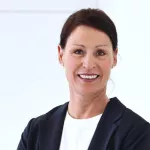
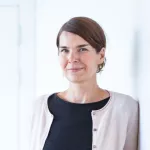
Contact person for MINT offers
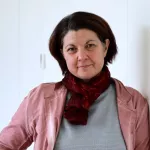
Coordinator for German schools abroad
